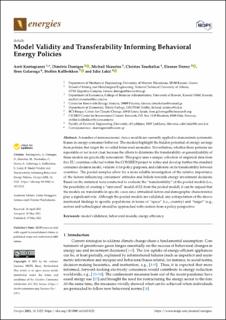| dc.description.abstract | A number of microeconomic choice models are currently applied to demonstrate systematic biases in energy consumer behavior. The models highlight the hidden potential of energy savings from policies that target the so-called behavioral anomalies. Nevertheless, whether these patterns are repeatable or not is not clear, because the efforts to determine the transferability or generalizability of these models are practically nonexistent. This paper uses a unique collection of empirical data from five EU countries collected within the CONSEED project to refine and develop further the standard consumer decision model, validate it for policy purposes, and elaborate on its transferability between countries. The pooled samples allow for a more reliable investigation of the relative importance of the factors influencing consumers’ attitudes and beliefs towards energy investment decisions. Based on the statistical tests conducted to evaluate the “transferability” of the pooled models (i.e., the possibility of creating a “universal” model of EE from the pooled model), it can be argued that the models are transferable in specific cases since attitudinal factors and demographic characteristics play a significant role. Although the pooled models are validated, any extrapolation of the above-mentioned findings to specific populations in terms of “space” (i.e., country) and “target” (e.g., sectors and technologies) should be approached with caution from a policy perspective. | en_US |

